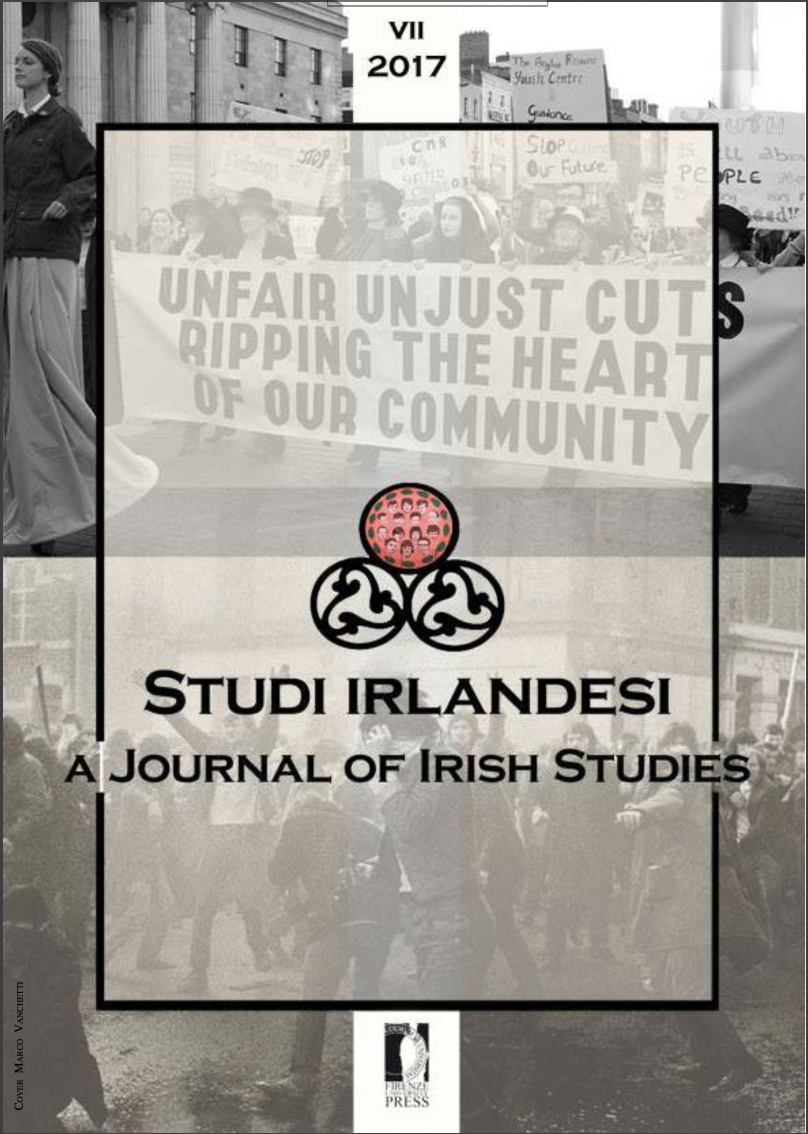Published 2017-06-08
How to Cite
Abstract
Samuel Beckett’s Catastrophe (1982), which is dedicated to Václav Havel, exemplifies in a direct way the idea of non-violent resistance. It is a short work in which an actor, who is going to appear before an audience under the instruction of a tyrannical director, performs an act of defiance with one simple gesture. The present article aims to explore the play’s effectiveness by setting it in the context of Beckett’s complex relation with Irish history. Catastrophe, hence, will be read from an Irish perspective, and the nature of Ireland’s presence in Beckett’s work will be analysed together with the subtle ways in which the author seeks to accommodate his own refusal to engage personally in a factious vision of Irish politics with a need to understand and interpret his country’s contemporary history.


